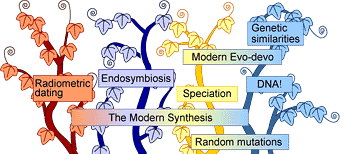Interpretation of the Evolution of History
If it is admitted that a society has its own nature, character and a living, growing and developing personality then the next question is, how is its evolution to be interpreted, i.e. how does it strive for a state of perfection?
We have already seen how the Holy Quran lays stress on the genuineness of society's personality and its evolutionary progress. We also know that there have been, and still are, other schools holding a similar view. Now we must find out how, from the viewpoint of the Holy Quran and from these other schools of thought, history develops. What are the responsibilities of man in this respect and what part is he supposed to play? What form should "The Great Expectation" assume is another closely related subject which must be explored simultaneously.
Historical evolution is interpreted in two different ways. One method is known as the materialistic or dialectic and the other is called human or natural. In other words, in respect of historical evolution there exist two different approaches and two different ways of thinking. According to each of them the great expectation assumes a different form and a distinctive nature.
We propose to explain these two ways of thinking, but only to the extent that they are related to the question of the expectation and hope for the future.





Post a Comment